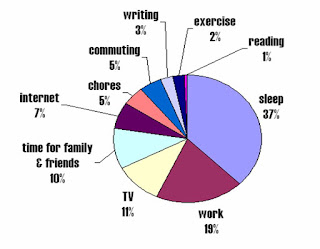Learning from history
Next to this document, the gallery exhibited a handwritten letter from Tunku Abdul Rahman to the Singapore Deputy PM, Toh Chin Chye, in which Tunku wrote that, if he had the strength and ability to exercise complete control over the situation, he would not have advocated separation so strongly, but since he was not, separation was the only practicable solution, and that he hoped DPM Toh would sign the agreement. The gallery's notes record that DPM Toh eventually reluctantly agreed.
I thought that this was such a cool exhibit - it showed the very real and human struggle of some of the individuals behind the separation of Singapore and Malaysia. Separation was not just a political and historical event. I was struck by the personal struggle of Toh Chin Chye as Deputy PM in initially withholding his signature. I was touched by the sincerity and vulnerability in Tunku's handwritten note. So much emotion and human individuality surrounded what is easy to think of as the "mere" historical fact of separation. I think that really great museums tell the story of the individuals behind the events, and not just the event itself. I've been to Yad Vashem, the Israeli museum dedicated to Jewish victims of the Holocaust, and the experience there is incredible, particularly because the exhibits make such a point of individualising history, down to specific names and families, and their thoughts and hopes and dreams.This above is a picture I took of one of the exhibits where the names of victims are projected onto your hands, signifying the holding of lives in our hands). I mean, I love museums in general, but I tend to think that it's most moving when an exhibit manages to give its visitors insight into an individual.
The idea of conveying life experiences to those who come after us is a powerful one. Much more than plain logic, the sharing of life experience contextualises decision making with emotion, inner conflict and hard earned wisdom.Last Friday, a bunch of us gathered as men to do just that. One of us shared about the joy of just spending time with his son. Holding him in his arms as a small boy, watching him grow into a big pre-teen, too heavy to carry, but still joyful to hug and hold close. He shared how he consistently made the decision to spend time with his son over the years, so that now, looking back, he can tell himself, yes, I was there for him when his teeth dropped, I was there when he came back from school with a good result (or a bad one), I was there when he was sad about a friend.
Science and parenting websites can tell you "according to studies, children who grow up with a father who is present are xx% more likely to be emotionally secure, and successful in their work". But hearing the life wisdom of a friend who's gone through it (or has made a mistake) is so much more powerful.It's the same when it comes to mentoring in the workplace, or shepherding in the church community. You can read self-help books about how to do well at work, but nothing beats someone actually sharing how to deal with a difficult colleague, when to back down and when to stand firm, and what to do when there's a moral dilemma. You can hear a hundred sermons about how to walk closely with God and love our neighbour, but hearing someone's testimony of how to cling on to God, even in ill health or loss, is so much more effective when we have to go through that ourselves some day.
I've been privileged to learn from so many people's life experiences, from my parents to my wife to my own children, to my bosses and church leaders and friends. So it's only fair for me to pay it forward, by taking the time to share with my friends in church and work and elsewhere, and with my children too, about the big and small things that God has taught me over all these years.Be the first to apologise when there's a quarrel at home. Resist the urge to have the last word. Consistently practise integrity in the small things, so when the big temptation comes, you'll instinctively make the right and tough decision. Care about other people's success in the workplace. Stop thinking so much about money. Don't be afraid to try something you don't (yet) know how to do. Build a habit of writing down what God is saying to you on a daily basis. Make deliberate day to day life decisions to share the good news of Christ, whether it's sending a note or arranging a lunch. And probably one of the most important: it's not about you. And all the many real life stories and struggles behind these simple truths.
It's not just about sharing grandfather stories. If all this was just human wisdom, then perhaps you really are better off just going to a self-help seminar. Thank God that it isn't just about people who think they're clever, sharing life hacks. It's about people who realise how flawed and imperfect we are, and have gratefully received the help that God has sent to guide us through life's messes. If you want to be a part of this, just get in touch - I'd love to hear about your life, and share with you mine!










Comments